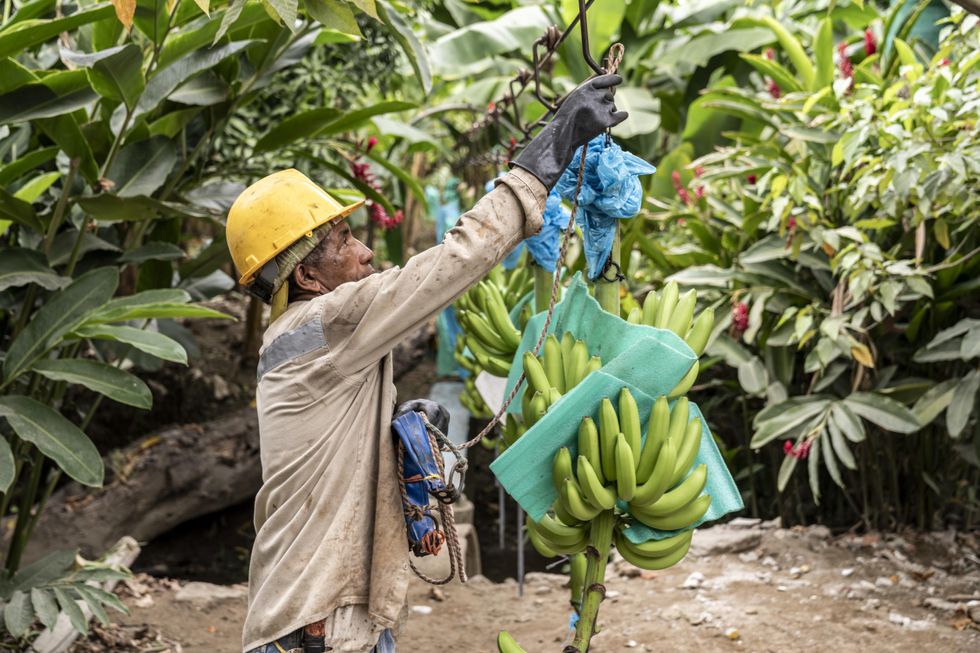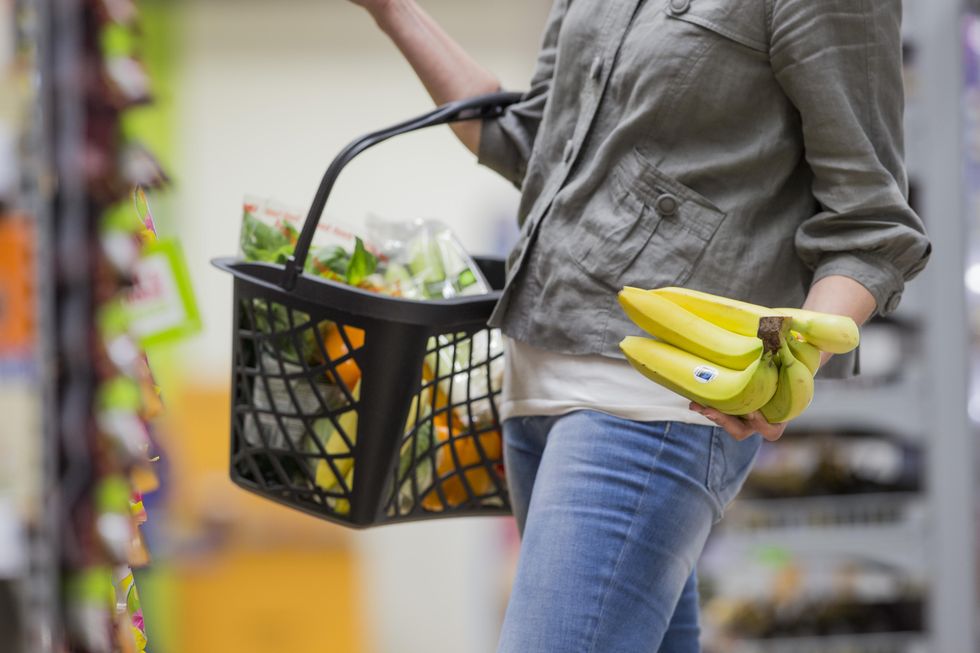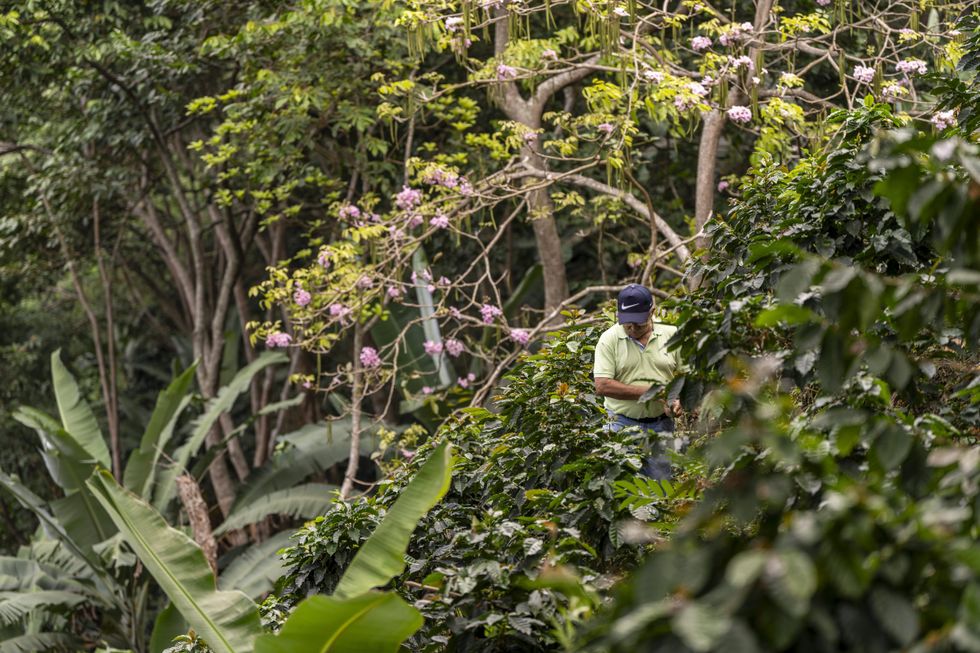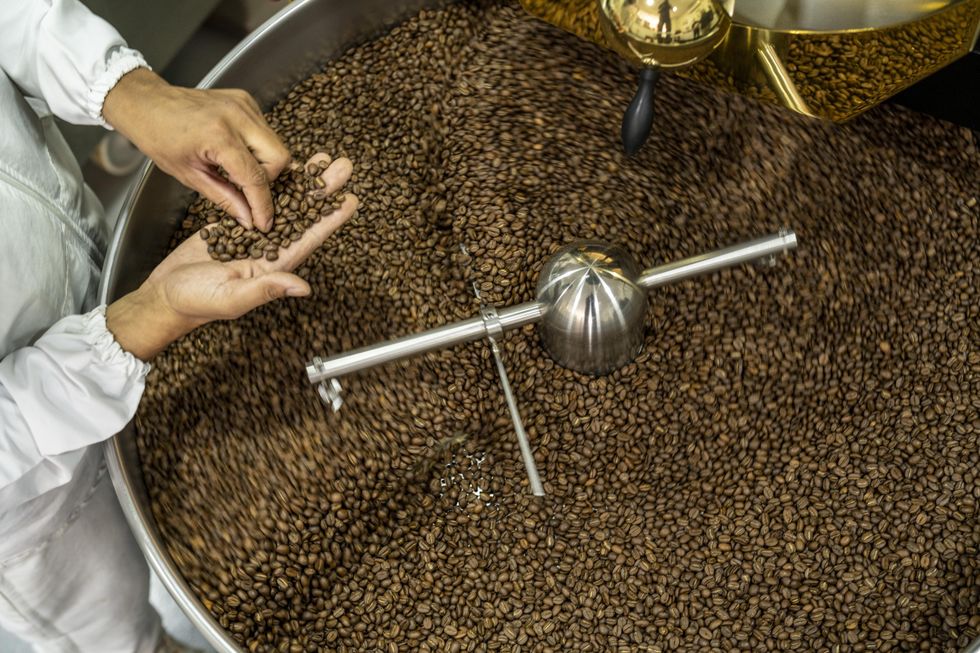News
Rebecca Speare-Cole
Sep 08, 2024

A worker processing bananas at a farm near Orihueca in Magdalena, Colombia (Fairtrade/PA)
PA Media - Chris Terry
Fairtrade is thanking British shoppers for supporting low-income farmers around the world, as research suggests that two-thirds opted to buy certified products this year.
Marking its annual Fairtrade Fortnight campaign, the organisation said the British public has helped to protect the future of everyday essentials like bananas, cocoa, tea, flowers, coffee and more, through their purchasing decisions.
Research by YouGov found that seven in 10 UK adults (69%) said they bought a Fairtrade product, which are produced by farmers and agricultural workers overseas.

Fairtrade’s minimum price, premium payments, standards and guaranteed fairer prices mean farmers can afford to put food on the table, send their children to school, cover farm costs and adapt to climate change.
The certification body said that retail sales of Fairtrade products generated around £28 million in premium payments in 2023, which went directly to the producers so they could invest in business, community, healthcare, education and climate resilience projects.
During Fairtrade Fortnight, which kicks off on Monday, the organisation is joining up with supermarkets and leading brands to thank millions of people across the UK for their impact on these farmers’ lives.
This includes billboards placed outside supermarkets in London, Manchester, Birmingham, Bristol, Cardiff and Edinburgh from Monday, congratulating shoppers on their support and encouraging them to buy more Fairtrade.
The billboards will highlight local purchasing figures, such as nine in 10 adults (89%) in Edinburgh buying a Fairtrade product last year and 65% of adults in Bristol enjoying Fairtrade chocolate.
The Co-op will offer a 10% discount on Fairtrade products for their members during the two weeks while brands like Maltesers, Ben & Jerry’s, Green & Blacks, Clipper and Cafedirect will also join the celebrations, the organisation said.

Elsewhere, thousands of grassroots supporters in communities, schools, places of worship and universities are planning hundreds of special events across the country to celebrate the campaign as well as Fairtrade’s 30th anniversary.
Marie Rumsby, Fairtrade Foundation’s director of advocacy, said: “Every Fairtrade purchase makes a difference to farmers’ lives, and we want to remind shoppers that when they next visit a supermarket, they choose products with the Fairtrade logo, as these ensure farmers receive fairer prices for their hard work and can invest in their families and communities.
“Without the stability a fairer trade system provides – and as farmers tell us climate change is making it harder to grow crops – it is more important now than ever to show solidarity so future generations of farmers will be able to continue farming.
“But choosing to buy Fairtrade products helps build their resilience to these global challenges and helps keep our favourite products on our supermarket shelves.”
Elsewhere, Fairtrade research revealed that significant sections of the British public continue to back fair prices and fairer terms of trade for overseas farmers.
The survey found that 85% of UK adults think farmers in low-income countries should receive stable and fair pay for the products they grow.

And more than half (54%) of UK adults understand that buying Fairtrade has a positive impact on the lives of farmers and workers.
Fairtrade also found that the majority of the UK public shares its concerns about climate change putting production and supply at risk, and the impact this could ultimately have on prices.
Its latest poll revealed that 4 in every 5 adults in the UK (79%) are concerned about the potential effect of climate change on the price of food in the UK.
A similarly high number – 69% – are concerned about the potential effect of climate change more widely on the supply of food in the UK.
Top 100
The Conversation (0)













